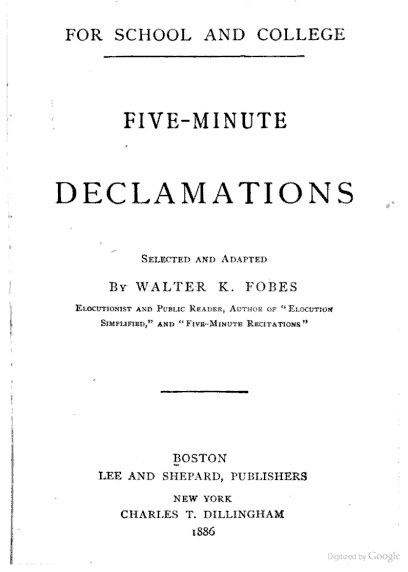All baggage is lost
I'm on a train in Holland, travelling from Amsterdam to Nijmegen for a lecture I have to give at the Max-Planck Institute for Psycholinguistics. Arriving at Amsterdam's Schiphol airport is wonderful, not just because you can walk in a few minutes from the gate along the concourse to your train, but because you can actually buy the train tickets from a flawlessly interfaced automatic machine located inside the baggage hall. I strolled over to buy my ticket to Nijmegen while waiting for the bags off my flight from Edinburgh to show up. However, when I got back to carousel number 9, the area around it was deserted. Everyone had gone. The conveyor belt was still going round, but it was empty. And on the screen above it was a sign that appeared to convey the most disappointing news imaginable:
Alle bagage is gelost.
Oh, no! All of it, lost and gone to who knows where! For a few seconds I felt that this visit was going to start with a major disappointment, and a highly inconvenient hour of claiming for mislaid baggage.
Read the rest of this entry »
The job market for linguists
Which employers are looking for linguists these days, and what kinds of linguist are they after? The usual assumption is that linguists are employed almost exclusively in academia, and that they are generally engaged in esoteric theoretical work. I've long suspected that this is not completely true, but I'd never really looked into it. Facing two long plane rides this past week, I decided to get the data and wade through them. This post reports some initial findings about 2008.
Read the rest of this entry »
snarge
It isn't often that I learn a new English word while reading the newspaper, but today's New York Times contains one: snarge. It means "the residue of birds that have struck an airplane" and is used by, and apparently was coined by, the people at the National Museum of Natural History who try to identify the birds that have had fatal encounters with airplanes. I leave to the imagination what future anthropologists will make of the existence of this term. They'll probably decide that 21st century Americans practiced a peculiar high-tech form of divination.
Advertising supergraphics
One idea that might solve our current economic woes appears to be for advertisers to erect huge signs that will motivate reluctant consumers to empty their wallets and buy stuff again. These signs go by the name of “supergraphics.” Actually, this word doesn’t add much to the lexical inventory of English. If you look it up, you’ll learn, not surprisingly, that it means really, really, really big signs — ones that are much bigger than billboards, some of them even two stories tall.
The problem with this advertising solution, reported in The Los Angeles Times (although it's prevalent other cities as well), is that supergraphic signs irritate the commercial and professional businesses that suddenly find their office windows covered by large vinyl or plastic sheets hawking advertising services and products that are very different from their own businesses and are not at all helpful for attracting their own customers. Instead of stimulating business, they complain that it drives their customers away, thereby negating any stimulus to the economy that might be wrought by supergraphics.
Read the rest of this entry »
Permalink Comments off
Rational use of Russian bowels
Headlined as a list of "Top 10 translation fails of 2008", this post at the company blog of Alta Language Services is a mixed bag. There are amusing solutions to translation difficulties (the Arabic, French, and Italian for Maverick), subtle choices with serious consequences (whether Russian troops provide security "for" South Ossetia and Abkhazia or security "in" South Ossetia and Abkhazia), unsubtle choices with funny consequences ("state regulation of bowels use" rather than "state regulation of underground natural resources use"), and so on. Regular LL readers will recognize several of them.
Read the rest of this entry »
Nashville English Only amendment fails
The Nashville English Only amendment whose chief proponent gave as justification for it the un-fact that some California state legislators do not speak English has been voted down by a substantial margin, 41,752 to 32,144. Congratulations to the people of Nashville.
[Thanks to Jon Weinberg for the pointer.]
Taboo toponymy
On the 23rd, the New York Times ran a "fun Friday" piece on British place names that are arguably offensive: Sarah Lyall, "No Snickering: That Road Sign Means Something Else". With photos of signs for Butt Hole Road (South Yorkshire), Pratts Bottom (Kent), and Penistone (South Yorkshire again — no, it's not pronounced the way you think), and mentions of a number of others. The story was filed from the village of Crapstone, in Devon.
Read the rest of this entry »
Permalink Comments off
Kentucky Court of Appeals: domain names are not gambling devices
We have previously discussed the claim of the Attorney General of Kentucky and a trial court's acceptance of that claim, that the domain names of internet gambling sites are "gambling devices" and therefore subject to seizure under Kentucky law. I am pleased to report that the Kentucky Court of Appeals has ruled that domain names are not gambling devices and on this basis has issued an order of prohibition barring the trial court from enforcing its seizure order. The majority held that:
…it stretches credulity to conclude that a series of numbers, or Internet address, can be said to constitute a "machine or any mechanical or other device…[sic] designed and manufactured primarily for use in connection with gambling." We are thus convinced that the trial court clearly erred in concluding that the domain names can be construed to be gambling devices subject to forfeiture under KRS 528.100.
Read the rest of this entry »
Presidential parataxis?
Unexpectedly, Stanley Fish's most recent NYT essay praises word-counting as a technique of rhetorical analysis ("Barack Obama's Prose Style"):
One day after the occasion, USA Today offered as an analysis of [Obama's inaugural address] a list of the words most frequently used, words like America, common, generation, nation, people, today, world. This is exactly the right kind of analysis to perform, for it identifies the location of the speech’s energy in the repetition of key words and the associations forged among them by virtue of that repetition.
This is odd, since Prof. Fish is known for attacking attempts to base literary analysis on counting things in texts (e.g. "What is stylistics and why are they saying such terrible things about it?", in Essays in Modern Stylistics, 1981). But he returns to type in his own analysis of the inaugural address, which relies on quantitatively unsupported assertions:
There are few transitions and those there are – “for,” “nor,” “as for,” “so,” “and so” – seem just stuck in, providing a pause, not a marker of logical progression. Obama doesn’t deposit us at a location he has in mind from the beginning; he carries us from meditative bead to meditative bead, and invites us to contemplate. […]
There is a technical term for this kind of writing – parataxis, defined by the Oxford English Dictionary as “the placing of propositions or clauses one after the other without indicating . . . the relation of co-ordination or subordination between them.”
The opposite of parataxis is hypotaxis, the marking of relations between propositions and clauses by connectives that point backward or forward.
Ironically, this analysis is quantitatively doubtful, as we'll see below: Obama's speech actually uses the relevant sort of connectives at a higher rate than George W. Bush's 2005 inaugural address did.
Read the rest of this entry »
New directions in the science of green materials
 From the web page advertising the new Asus bamboo series:
From the web page advertising the new Asus bamboo series:
Mature Moso bamboo, around 2 years old, is used in the Bamboo notebooks. This aligns with the natural lifespan of the bamboo, and the manufacturing process uses less energy than traditional metal alloys that are refined from petrol.
Read the rest of this entry »
Not marble nor the gilded monuments
Opinions were strikingly divided about Obama's inaugural speech, and not necessarily along ideological lines. George Will called it lyrical and Pat Buchanan called it "the work of a mature and serious man"; but in National Review, Yuval Levin said that within a few weeks not a line of it would be remembered, and Rich Lowry spoke of "overwrought clichés and poor writing." At the New Republic, John Judis called it a "disappointing muddle" that "got no style points," while John McWhorter, moonlighting from his Language Log day job, called the speech "worthy of marble" and pointed in particular to Black English influences on Obama's cadences, though he didn't develop the point in detail. And Stanley Fish pronounced the speech a paradigm of paratactic prose, which in its nature "lends itself to leisurely and loving study," and having duly allowed himself to "linger over each alliteration [and] parse each emphasis," predicted that it would be studied in a thousand classrooms: "canonization has already arrived."
Those are the criteria people always bring to this sort of address: Was it memorable? Marmorealizable? Did he stick the landing? It's understandable, a way of flattering ourselves that ritual oratory still matters. But I have the feeling Obama and his writers knew better.
Of course it was a very memorable event, on a historic, make that epochal, occasion. And the speech is sure to be memorialized — in fact Penguin Books is already on it.
But if the speech was well turned, it wasn't memorable. What's more, it didn't need to be memorable. It couldn't have been memorable. And my guess is that nobody tried too hard to make it memorable. As I put the point in a "Fresh Air" piece that aired today [full text here ]:
Obama’s speech made all the required moves: it was grave but not doleful; resolute but not belligerent, eloquent but not grandiloquent. Its acknowledgments were eclectic: Biblical allusions, a nod to Tom Paine, a shout-out to Jerome Kern.
But it wasn’t especially memorable. If we still lived in an age when people compiled collections of great speeches for pupils to memorize and declaim on national holidays, the editor would more likely go with the moving speech that Obama made in Grant Park on the night of the election.
But that isn't necessarily a weakness of the speech.
Read the rest of this entry »
Global Voice Translator
What? You haven't heard of the Pomegranate phone? It's "[t]he ultimate all-in-one device", going "where no phone has gone before". It's amazing. I want one, even more than I want an iPhone (and I want one of those pretty bad, so you can just imagine).
The Pomegranate's niftiest feature is probably the Global Voice Translator, illustrated here:
(I say "probably" because the niftiest feature is really the coffee brewer, but this is Language Log, so I had to go with the GVT.)
[ Hat-tip: Andy Kehler. ]
